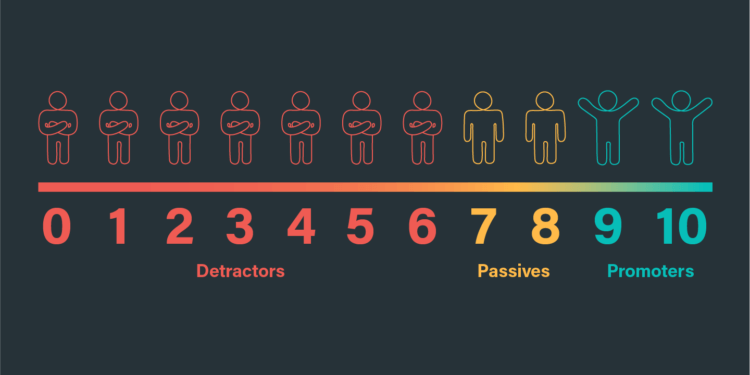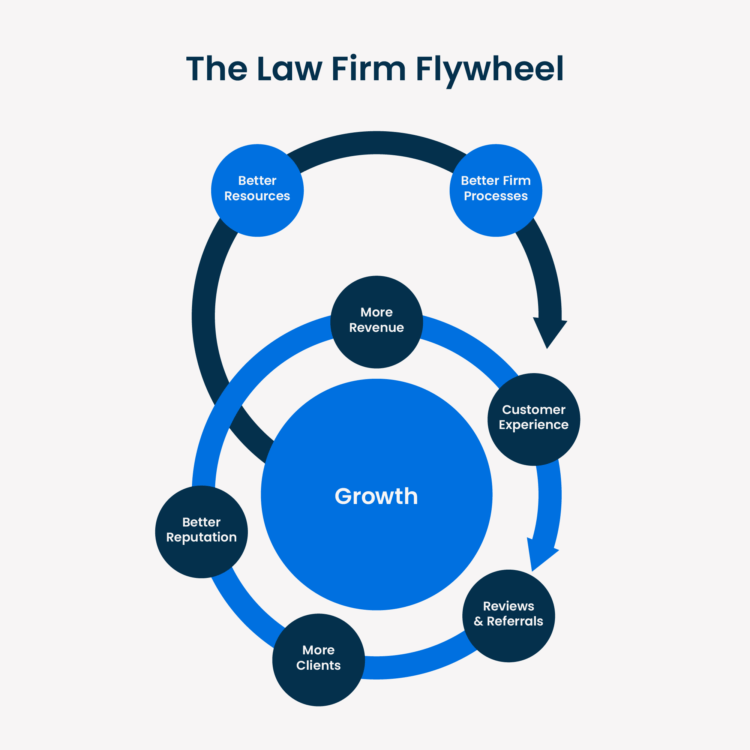

About the episode:
Consumer expectations have changed, no matter what industry you’re in.
Legal clients expect convenience, faster response times, and timely, meaningful communication, and law firms who commit to providing amazing client experiences will enjoy more referrals and increased revenues—and more positive interactions with their clients.
Greg McLawsen of Sound Immigration and Joshua Kubicki of Bold Duck Studio shared their expertise on all things client-experience related with us—from common misconceptions about the client experience in the legal industry, to advice for improving the client experience at larger firms.
Greg is the leader of a successful, Seattle-based immigration law firm, and Joshua has previously worked as head of strategy at Seyfarth Shaw, so you’ll definitely want to hear their thoughts.
Our Guests:

Josh Kubicki
Josh has worked with some of the world’s biggest brands like Verizon, Adecco, and Thomson Reuters, building services and products for business and legal teams. His entrepreneurial mindedness paired with his pioneering application of design along with his wealth of knowledge in law has made him a trusted advisor for nearly two decades to law firms of all sizes, in-house teams, and legal tech companies. He is a lawyer by training and an intrapreneur by experience.

Greg McLawsen
Greg McLawsen is the managing attorney of Sound Immigration (www.soundimmigration.com) and Immigration Support Advocates (www.i-864.net). His practice focuses on helping vulnerable immigrants recover financial support from their Form I-864 sponsors.
Host bios:

Teresa Matich
Teresa Matich is the Content Strategist at Clio, where she’s responsible for educating the legal industry on market trends, best practices, and important issues impacting law firms. In her spare time, she enjoys traveling, snowboarding, and traveling to snowboard. Email her at [email protected] or tweet her at @TeresaMatich.

Andrew Booth
Andrew Booth works within the Business Operations department at Clio as the Learning Media Specialist. He is best known as the voice (and sometimes face) of Clio’s training videos, and the voice and tweets behind the @JackNewtonsShoe Twitter account. Andrew received his Broadcast Communications degree from BCIT, and has produced work for such broadcasting outlets as Global News and Roundhouse Radio. Email him at [email protected] or tweet him at @JackNewtonsShoe.

Derek Bolen
Derek Bolen is the Senior Manager of Customer Marketing at Clio, which means he gets paid to build relationships with the greatest customers in the world. When he isn’t working, he’s tweeting, reading, writing, podcasting, running, obsessing over fantasy football, or hanging out with his 5 year old son. Email him at [email protected], or tweet him at @hurrrdurrr.
Show notes
- Introduction
- Greg McLawsen talks about buying travel pants and the importance of providing an effortless experience
- Greg explains why law firms have missed the importance of experience in the past
- Greg shares his tips for creating a client-centered practice, including using technology
- Joshua Kubicki talks about the thinking behind the client experience in a broader business context
- Joshua talks about why legal clients expect the same service they get elsewhere
- Joshua explains why thinking deeply about a client’s ‘job to be done,’ even for business clients, is key for helping firms provide great service and stand out
- Conclusion
Transcript
Read full transcript
Andrew: I’m Andrew Booth.
Teresa: And I’m Teresa Matich and this is “Matters”. “Matters” is a podcast presented by Clio, the world’s leading cloud-based legal practice management software.
Andrew: “Matters” offers rich, 30-minute episodes based on carefully curated topics with ideas from industry experts and examples from successful practicing legal professionals. We promise that taking these 30 minutes to listen in will be well worth your time.
Teresa: In our first episode we’ll be talking about the client experience and why it matters.
Andrew: The client experience, a relatively intuitive concept but also an ephemeral idea. For businesses that master it, there’s a big reward. Global powerhouse brands like Starbucks, Amazon and Apple have reached a combined market cap of $1.7 trillion because of it. Amazon alone has reached a market cap of over $900 billion. It’s top leadership principle, customer obsession.
The client experience refers to the sum of interactions any business has with a given client. We’re all experiencing things all the time. So why does our experience as a client matter so much? More importantly, why should you as a legal professional care about it?
The answer is that consumer expectations have changed no matter what industry you’re in and law firms that recognize this and act on it stand to benefit massively.
Today we’re going to be talking about how the client experience plays out in the legal space, including how law firms can pay extra attention to the client experience to gain a competitive edge.
Teresa: First, here’s Greg McLawsen
Greg: o we are Sound Immigration. We’re America’s online immigration law firm. We’re eight attorneys and the issue of where we are, I guess, is somewhat up to debate and/or variable. Our attorneys are based out of eight different offices and we deliver services primarily online. So for me, I’ll be in Italy next week and will be delivering services from the Amalfi coast.
Teresa: Running a practice that lets him travel doesn’t mean that Greg neglects his clients. Quite the contrary. Greg is a strong believer in the power of the client experience and he’s constantly thinking about it both in terms of his practice and in terms of his everyday life. Such is the case with a recent purchase of travel pants.
Greg: So I’m leaving tomorrow to Italy and I wanted a new pair of travel pants, right? So in less than ten minutes I surveyed, you know, 100 different types, skimmed a bunch of reviews and had a pair of, you know, what looked to be probably the best available travel pants. You know, they’re now waiting for me at home.
Teresa: That’s a pretty seamless, effortless experience, and in Greg’s opinion it’s a baseline for what consumers expect from everything nowadays and that’s been the expectation for a long time. A simple, painless, intuitive experience that gets you what you need fast. But according to Greg, many law firms have missed the memo on client experience. They focus on delivering legal services, but they don’t focus on other key parts of the experience like client interactions, access to information, or how their clients feel because in the past they haven’t really had to.
Greg: You know, if you have a monopoly on doing wills and trusts or doing immigration forms, you don’t have to be as sensitive to the consumer’s experience as you do once alternative options start filling up the space and all of a sudden, you’re not the only game in town.
Andrew: The problem is those alternative options are starting to fill up the space which means that there isn’t a monopoly anymore. Greg is seeing it firsthand.
Greg: Yeah, I mean it’s been fully 35 minutes since I was corresponding with somebody who runs a company who’s basically trying to push into the space that I’m occupying right now and basically automate the experience that I’m delivering to clients which I think is insulting for the industry.
Andrew: The prospect of a new player coming to the market and automating your entire business might seem scary, but for Greg, it’s far from that. He believes it’s healthy for the industry. Why? Because he believes he has something to offer that AI can’t.
Greg: We understand as a firm that we can do a really slick job with things like getting information from our clients in questionnaires, but we’re never going to be as slick as the guys who do that as their main job and so we really emphasize the value-add of the counselling aspect. And this goes back to consumer interviews I did years ago that made me realize that a major reason that clients come to us even if they don’t always articulate it that way isn’t just to get the thing filed properly or to get advice about their legal options. It’s so that six months down the line when they’re worried about their future, they don’t know if they’re going to get naturalized, they don’t know if they’re going to be able to stay in the States with their family, they want to be able to call somebody up and be told and have this be true that everything’s going to be all right. And so we understand that one of our primary value adds to clients is to be authentically their companion and counsellor during the process. And I think a lot of attorneys will also say that, but we understand that as one of the core value-adds at the firm, not just delivering the particular legal deliverable.
Andrew: Companionship, counselling, and peace of mind. All things you can offer as an attorney. All things that go beyond the scope of just delivering legal services. This isn’t without significance. The 2018 legal trends report issued by Clio found that three of the top four reasons people had hired an attorney within the past two years had nothing to do with cost and everything to do with perception.
Greg sees the counselling aspect of his services as part of his business offering which means he pays attention to it and invests in it just like he would any other business initiative.
Greg: You know, so like features that help us deliver that just for example would be to make our attorneys as accessible as possible in the process. So for example, clients can immediately self-schedule interviews with their attorneys anytime they want during the process. There’s no cost for that. They can just go to our website, select their attorney and schedule a 15-minute help, I’m freaking out interview. You know, and we have strict policies about responding to clients so that we’re institutionally emphasizing getting that attorney to the client as fast as possible when they’re having that moment of darkness in their case.
Teresa: The result here is that Greg’s clients have peace of mind and a positive client experience, and both of those are key for Greg’s business. Plenty of studies have found that customers are more likely to share a poor customer experience than they are to share a positive one. So paying attention to all aspects of the client experience is just one way to build a strong reputation, and it may even result in some referrals for your firm down the line. Another way Greg invests in the client experience, by thinking about how the software he uses affects his clients. Technology is key to the client experience. For example, when Greg can’t find a solution that works for both him and his clients he holds out, sometimes for years.
Greg: So we work in the immigration space which is all of our cases are going to involve at some point of the process spitting out 20 to 60 plus pages of forms. So a major pain point for the attorneys working on cases and also for the clients is how do they give us the information that we need to produce those forms and then get that information into the government issued forms.
So that’s potentially an obnoxious experience for clients and for the attorneys who do it. There have long been a number of applications out there specifically in the immigration space that do this. What they didn’t do well was the client facing form that gets the information from the client. So eight years ago, six years ago, we could have adopted one of these platforms and gained efficiency at the firm. We would have saved attorney and support time by using one of these programs, but it sucked from the client perspective.
So for example, one of the software platforms by design would have had me send one version of questionnaires to the client and then always required me to follow up with a second round of questionnaires. I just know how I would experience that. It would piss me off because it’s like I just set aside an evening to do this homework for you and now I’m getting a second round of homework. Why wasn’t this all there to begin with?
So fast forward now, we only adopted a form software when we found one that we thought delivered an excellent client experience from our client standpoint. Great that it’s also efficient, but the touchstone for that decision was is it going to improve the client experience and not just save us time.
Teresa: When it comes to finding the right technology, Greg doesn’t wait on the sidelines either. In some cases, he’s taking matters into his own hands.
Greg: Yeah. So a major pain point we’ve identified for clients and just for community members who come to our website – we have a pretty high volume of traffic of people just coming looking for answers on our content management system – is basically wondering where they are in the adjudication process once their case is filed. A lot of – and this is way worse in the States than it is up here in Canada, but there’s very, very lengthy waiting times for a lot of immigration processes so people freak out about where their case is in the pipeline.
So we’re going to put out probably as soon as later this week request for proposals on an app that would scrape data from the immigration agency website, pull somebody’s particular receipt number and give them a visual representation of where they are in the adjudication pipeline which there are apps that sort of do that but not really and we think we can deliver a more beautiful consumer experience to solve that particular problem not just for the public but also for our clients.
Teresa: Of course, it can be difficult to know exactly what any given client will or won’t like, but in some cases, like the examples discussed here, Greg argues that it’s more obvious than you might think. There will be times when it makes sense to do in-depth surveys to find out what your clients really want but there will also be time to simply have a little empathy, to put yourself in your client’s shoes and experience their experience.
Greg: So for any decision, it’s imagine you’re the person in that situation. How does it feel to be there?
Andrew: So if you want to invest in client experience and improve the value your law firm provides, don’t underestimate what you provide to your clients on top of the legal deliverables and carefully consider the technology you choose from a client experience standpoint.
Greg left us with one final piece of advice for other lawyers. Communicate to your clients about the value you’re providing.
Greg: I mean maybe the best I could do is to encourage folks to think critically about where the value is that they’re actually delivering to clients and to get out of the habit of thinking about it purely in terms of the legal deliverable. A good example would be, you know, you can write the most brilliant slam-dunk summary judgement brief in the world, but if your client hasn’t really understood what went into that, then the perceived value isn’t there even if the hard legal advocacy value is. And that’s a big potential gap if your clients aren’t understanding what you’re doing.
Andrew: That’s a pretty strong argument for investing in creating a positive client experience for small firms, especially in areas of law that affect one’s personal life. But there’s also a pretty strong argument that anyone in any service industry needs to be caring about the client experience even if it seems like you’re working with a business client who only cares about the legal deliverable you provide. To get more insight into this, we spoke with Josh Kubicki.
Josh: Yeah. So I’m Josh Kubicki. I am the recent co-founder of Bold Duck Studio which is a business design studio specifically geared towards big law and corporate in-house teams.
Teresa: Joshua has also worked as head of strategy at Seyfarth Shaw which is an Am Law 100 firm. As Joshua explains, the customer experience permeates everything we do and it’s extremely powerful. It can turn a humble commodity like coffee into a truly enjoyable experience, something that has real value.
Josh: The one example I always use, it’s really sort of the bread and butter and that is of Starbucks. They have excelled at moving what is basically a commodity product. I mean think about, you know, ordering a cup of coffee at a diner or something like that or just a greasy spoon, you know, maybe a buck, maybe a buck and a quarter these days. There’s nothing really fancy about it, but at the end of the day it’s a coffee and it’s extraordinary that Starbucks has converted this beverage into an absolute experience that as customers of Starbucks we’re interacting with Starbucks sometimes hours before we actually drink their product, sometimes hours before we actually enter their store. You know, the Starbucks app, just sort of the image and the brand out there as we crave as consumers the holiday drinks that are out there and everyone gets crazy over the latest Frappuccino to sort of the baristas and how they interact with their customers and all that.
So you look at that example in the marketplace and there’s a lot of other sort of academic studies as well as, you know, folks like McKinsey looking at this that today’s consumer whether you’re a millennial or not, but millennials tend to crave experiences over core product and services, we tend to gravitate towards brands that are more thoughtful about providing us an experience beyond just their core product and service.
Andrew: If it’s possible to turn a commodity like coffee into something more valuable by focusing on creating a memorable experience, it’s definitely possible to differentiate your law firm by providing a better client experience. This goes for all types of law firms, even large corporate organizations.
Josh: Lots of people think well, the B2C, the consumer market, doesn’t translate well in sort of the B2B market where the legal markets play or into the B2B professional services, but there’s really a misconception there. One, we’re all humans, right? So I don’t care if you’re a big-time lawyer, you know, or a solo lawyer running his or her law firm. We’re all humans. We’re all interacting as consumers and all that. So those habits and behaviours we’re experiencing in our daily lives absolutely migrate and get transferred into our preconceived notions, our expectations around when we buy or interact with anything.
So in the B2B space, we’re seeing large B2B behemoths really trying to think more about their customer journey, more about how easy they are to do business with.
Andrew: This ties into Greg’s point about knowing that the value you provide extends far beyond the legal product you deliver. Piece of mind is one component of extra value a lawyer provides, but there are many more examples. The client experience encompasses every interaction your law firm has with its clients. This goes both ways. For example, if you neglect different pieces of the client experience there’s actually a danger of providing negative value. At least that’s how your clients will see it.
Josh: So traditionally or generally, lawyers think of the client value as their advice and counsel they’re giving or their work product, right? Which is absolutely, hands down, one of the things that clients buy, right? But that’s not the only things clients are buying. If you are a pain to do business with or you’re just rude or you’re obnoxious or you can’t get a bill out on time or your bills don’t make any sense or whatever, sooner or later that client relationship’s going to erode. You’re giving negative value even though you may be the smartest lawyer there is.
Teresa: In other words, it’s important to look critically at how you’re sending out bills, how easy it is to do business with your firm, and how certain interactions are perceived by your clients. If there’s a negative experience currently, look for ways to improve it. Maybe your clients want to receive their bills online. Or maybe they’d like the convenience of paying by credit card. If you’re not sure where to start, Joshua suggests taking an inventory of every interaction your firm has with each client. Simply gaining an awareness of the extent of the client experience can clarify opportunities for your law firm to improve, adding value for clients and improving your firm’s reputation.
Josh: Touch points is – it sounds challenging at first, right? But if you think about – again, think about the business to business context and I don’t care if you’re a small law firm or a global law firm, you’ve got certain processes. You’ve got certain ways you communicate. You’ve got certain ways you intake matters. You’ve got certain ways you do the pitch and sort of business development. There’s certain processes and each time there’s a process more than likely you’re interacting or having a touch point with the target client or prospect. Then you have tools, everything from your technology which everyone is completely enamoured with these days, but also sort of forms, right, and databases. Those are tools and sometimes clients or users on the client side are interacting with them.
Let’s not forget the people, the people in our businesses. Everyone from administrative help to the global managing partner generally have a direct or indirect role to play in that client experience. It could be setting a mindset of the client team. So a managing partner who probably doesn’t have a lot of client contact, well how does that person sort of interact with that client team? What sort of expectations is she putting forth on that client relationship partner that then is going to be transferred to how they’re thinking about what matters to the client and all that?
So you map all of these touch points and you start to see there’s not just dozens and dozens but there’s hundreds and hundreds of them. And then you look and say okay, well which ones are more significant? Not every one is equal, so you don’t have to do an exhaustive examination of these and sort of design to the nth degree every single touch point, but just getting a sense of how many touch points they are, where they’re happening. The epiphanies that happen with lawyers when you go through that exercise are just countless and that’s just the beginning of the process where lawyers start to say oh, wow, we can actually make it easier for our clients to do business with us.
Teresa: Joshua says that law firms he works with to improve the client experience see real benefits for their businesses.
Josh: When we pay more attention to designing experience that is more thoughtful and that takes all of those users into account, we see that those companies, those firms that do that enjoy higher margins. They enjoy greater client retention. And honestly, from sort of the person to person and my experience, you actually start to enjoy your work a little bit more when you’re giving a good experience to a client or receiving it. So it actually makes the work environment a little bit more pleasurable and delightful.
Andrew: Joshua also recommends taking this a step further by truly putting yourself in your client’s shoes and thinking critically about the problem they’re actually trying to solve or about the job that you’re trying to get done.
Josh: So one of the tools or methods that really sort of help lawyers think about this from a client’s perspective – and I apologize. I’ll get a little academic here, but it’s something called jobs theory and really what’s the job to be done.
Andrew: You can learn more about the jobs theory in the book “Jobs to Be Done” by Stephen Wunker, Jessica Wattman and David Farber, but the general idea is that you should focus on the human need your service will fulfil, not the service itself. A common example used to illustrate this is the purchase of a hand drill. The buyer isn’t buying a drill, they’re buying a hole in the wall.
Josh: There’s an emotional job to get done, right? So if we think about it in a corporate context a certain buyer, say an assistant GC is buying lawyer acts to do some type of work, right? Well, obviously there’s a business reason to do that. They’re trying to get a deal done. They’re trying to mitigate risk with the expansion of some manufacturing plant in an international market, so on and so forth. There’s an actual business function that’s trying to get done, that that AGC is charged with sort of shepherding the legal elements of that through. But the emotional job begun is that AGC, you know, they have emotions. How do they want to experience that? Are they someone that feels like they need to have complete transparency, right? They need to know what their outside counsel are doing every minute. Do they demand sort of reassuring communications or do they demand sort of direct candor? Are they worried about how they’re being perceived by their bosses? Are they worried about how they’re being positioned with the business unit that’s trying to get this job done?
This sounds like a lot of touchy, feely, you know, psychotherapy stuff here. It’s not. In fact, a lot of this emotional job to be done can be discovered just by having a conversation with this client and paying attention.
Andrew: To take it even further, often clients aren’t trying to just solve their problems or complete their job, there are multiple other people involved in the process and the way that each of these people respond to your work once they see it will affect your client’s experience. The upshot is you may need to be thinking about the experiences of the people your client interacts with as well.
Josh: A good example is a retail lease, right? So in-house counsel, you know, uses outside counsel to negotiate retail leases. Say you’re a large franchise company. Well, that lease, great. Okay. So what matters in that lease to the – sort of the boots on the ground, the expansion manager who’s charged with identifying land and engaging it in a lease as quickly as possible? Well, they care about the terms and conditions and really the timeline, right? So that’s what they’re going to look at at the lease. What is sort of the risk and mitigation person going to be or compliance person going to be looking at? You know, they’re going to be looking at land use compliance, they’re going to make sure that the lease in course … So they’re going to be looking at that sort of language in the lease and the lawyer’s going to make sure that it fits sort of the company’s overall sort of strategy and risk profile for how they like leases going out and they have a good sense for what’s negotiable and what’s not as sort of they move forward.
So when you start to unpack that for outside counsel they start to realize that their work product has different levels of involvement and interaction once it’s delivered. And each one of those people are actually a user that could be saying things back to their client like oh my god, this is horrible, or I don’t know who you’re using but this is just not working, or they negotiated this poorly, so on and so forth.
Teresa: So the client experience involves a serious investment. For your firm to build a great client experience and to gain all the benefits that come with that you need to first get insight into the emotional need behind their business ask and then you need to get insight into the business asks of those they’re interacting with as well. How do you get this information? Simply talking to your clients is a good place to start but as Joshua explains, in most cases it isn’t that simple.
Josh: It’s the Henry Ford quote, you know. If I had asked people what they want they’d say faster horses. It’s the notion that most people really operate on the surface level and they’re looking for quick fixes, not really going to the root cause of their problems.
Teresa: Getting to the root of your client’s problems and coming up with creative solutions can be an intensive process, but it’s well worth the competitive advantage it will build for your firm. By asking the right questions, analyzing answers and empathizing with your clients you’ll be that much better positioned to create a brand and a reputation that’s a cut above the rest.
Andrew: Investing in the client experience can pave the way for a significant competitive advantage for your firm. No matter where your firm’s client experience stands now, keep looking for big and small opportunities to improve the client experience. Maybe you want to create a more user-friendly client intake form. Or maybe you just want to have a counsellor to refer clients to for especially emotional issues like bankruptcy or divorce.
Teresa: The client experience you create goes far beyond the legal deliverable you provide even if you’re dealing with a business client and creating an exceptional client experience is an excellent way to make your overall services more valuable. Clearly communicate the value of the experience you’re providing, and you’ll be even further ahead.
If you’re looking to dive even deeper into the client experience, there are plenty of tools and methods you could use to really get into it. In addition to using jobs theory to think about your client’s problems, both Joshua and Greg mentioned using the idea of design thinking to get to the root of your client’s experiences. They also talk about using a net promoter score or NPS to track and measure how well you’re doing in terms of the client experience. You can learn more about these concepts by clicking on the links in the resources section of this podcast.
Andrew: Thanks for listening to the first episode of “Matters”. “Matters” is produced by Andrew Booth, Teresa Matich and Derek Bolen and by Clio, the world’s leading cloud-based legal practice management software. Be sure to subscribe to “Matters” to ensure you never miss an episode. If you’d like to learn more about Clio, please visit us at clio.com.


